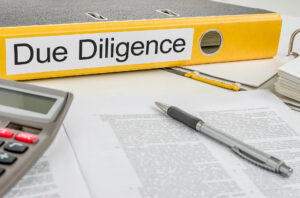Property Leasehold in Thailand is a significant decision, especially for foreigners, due to the country’s restrictions on foreign land ownership. Leasehold agreements offer an alternative, enabling foreign individuals and companies to legally occupy and use property for an extended period. This guide explores the leasehold system in Thailand, its legal framework, advantages and limitations, and strategic factors for both investors and residents.
Leasehold vs. Freehold: Key Differences
In Thailand, property ownership structures are categorized into freehold and leasehold:
- Freehold Ownership: Provides indefinite ownership rights over land or property. Foreigners cannot directly own land under Thai law, although they can own condominium units freehold under specific conditions.
- Leasehold Ownership: A long-term lease agreement where the lessee (tenant) rents the property for a fixed period, typically 30 years, with an option to renew.
For foreigners, leaseholds are a common way to control real estate while complying with Thai legal restrictions.
Legal Framework for Leasehold in Thailand
1. Lease Term Limits
- The maximum initial lease term for land or property is 30 years under Thai law (Section 540 of the Civil and Commercial Code).
- Renewals: Lease agreements can include renewal clauses (typically two additional 30-year terms), but these are not automatically enforceable. Each renewal must be registered and signed as a new contract.
2. Registration Requirements
- Lease agreements exceeding 3 years must be registered at the Land Office to be legally enforceable.
- A registration fee of approximately 1% of the total lease value is payable to the Land Department.
3. Lessee Rights and Obligations
- Lessees have the right to exclusive possession and use of the property during the lease term.
- Lessees must comply with the terms of the lease agreement, including maintenance responsibilities and property usage.
4. Transfer of Leasehold Rights
- Lessees can transfer or sublease their rights to another party, provided the original lease agreement permits it and the transfer is registered with the Land Department.
- Inheritance: Leasehold rights can be passed on to heirs, but this must be explicitly stated in the contract.
Advantages of Leasehold Property in Thailand
1. Legal Security for Foreigners
Leasehold arrangements provide a legally compliant pathway for foreigners to control real estate, especially land, for an extended period without violating ownership restrictions.
2. Cost-Effectiveness
Leaseholds generally involve lower upfront costs compared to purchasing freehold property, making them attractive for investors or expatriates seeking long-term residence.
3. Flexibility in Use
Lessee rights often include the ability to develop, modify, or build on the land, subject to the lease agreement’s conditions and local zoning laws.
Challenges and Risks of Leasehold Agreements
1. Renewal Uncertainty
While lease agreements may include renewal clauses, these are not automatically binding. Renewal depends on the willingness of the landowner to sign a new lease, and there is no guarantee this will happen, even if stipulated.
2. Landowner Risk
If the landowner sells the property or passes away, the new owner must honor the existing lease. However, this can lead to legal disputes if the contract is unclear or improperly registered.
3. Limited Control
Unlike freehold ownership, leasehold does not confer full control over the property. Restrictions on development or subleasing may apply, depending on the lease agreement.
4. Depreciating Asset
As the lease term progresses, the value of the leasehold decreases, unlike freehold property which typically appreciates over time. This depreciation affects resale potential.
Leasehold vs. Freehold Condominiums
Foreigners are permitted to own condominiums freehold under the Condominium Act, provided foreign ownership in the building does not exceed 49% of the total units. This often makes freehold condos more attractive for residential buyers. However, leasehold remains the primary option for those seeking to control landed property, such as villas or houses.
Strategic Considerations for Leasehold Investments
1. Due Diligence
Conduct thorough due diligence before entering a leasehold agreement:
- Verify the land title deed (Chanote is the highest title and most secure).
- Ensure the lease agreement is properly drafted and registered.
- Engage a qualified Thai lawyer to review the contract for renewal clauses, subleasing rights, and dispute resolution terms.
2. Structuring Lease Agreements
A well-drafted lease agreement should include:
- Clear Renewal Terms: Specify procedures and conditions for lease extension.
- Transfer and Inheritance Provisions: Ensure these rights are explicitly stated.
- Dispute Resolution Mechanisms: Consider including arbitration clauses to handle potential conflicts.
3. Alternative Strategies: Thai Limited Company
Some foreign investors establish a Thai Limited Company to purchase freehold land, where the foreigner owns 49% or less of the shares, and the remainder is held by Thai nationals. This approach offers more control but comes with additional legal and tax complexities.
Legal Safeguards for Foreigners
1. Land Title Verification
Ensure the land has a legitimate title deed. The most secure types are:
- Chanote (Title Deed): Full ownership rights with precise boundaries.
- Nor Sor 3 Gor: Similar to Chanote but not yet fully surveyed.
2. Registration of Lease Agreements
Registering the lease at the Land Office is crucial for enforceability. Without registration, the lease cannot be legally enforced beyond three years.
3. Legal Representation
Working with a reputable law firm or property consultant experienced in Thai real estate law minimizes risks and ensures compliance with local regulations.
Tax Implications
1. Rental Income Tax
Leaseholders who sublease or rent out their property must declare rental income and pay tax accordingly.
2. Property Taxes
- Lease Registration Tax: 1% of the total rental value.
- Withholding Tax: 5% for individuals or 3% for companies when paying rental fees to the landlord.
Conclusion
Leasehold property offers a practical solution for foreigners and investors to legally occupy and develop land in Thailand. While it comes with certain limitations, careful planning, thorough due diligence, and clear lease agreements can mitigate risks. Understanding the legal framework, structuring strategic lease terms, and engaging experienced legal professionals are crucial steps to ensuring a secure and beneficial leasehold investment in Thailand’s dynamic real estate market.





















